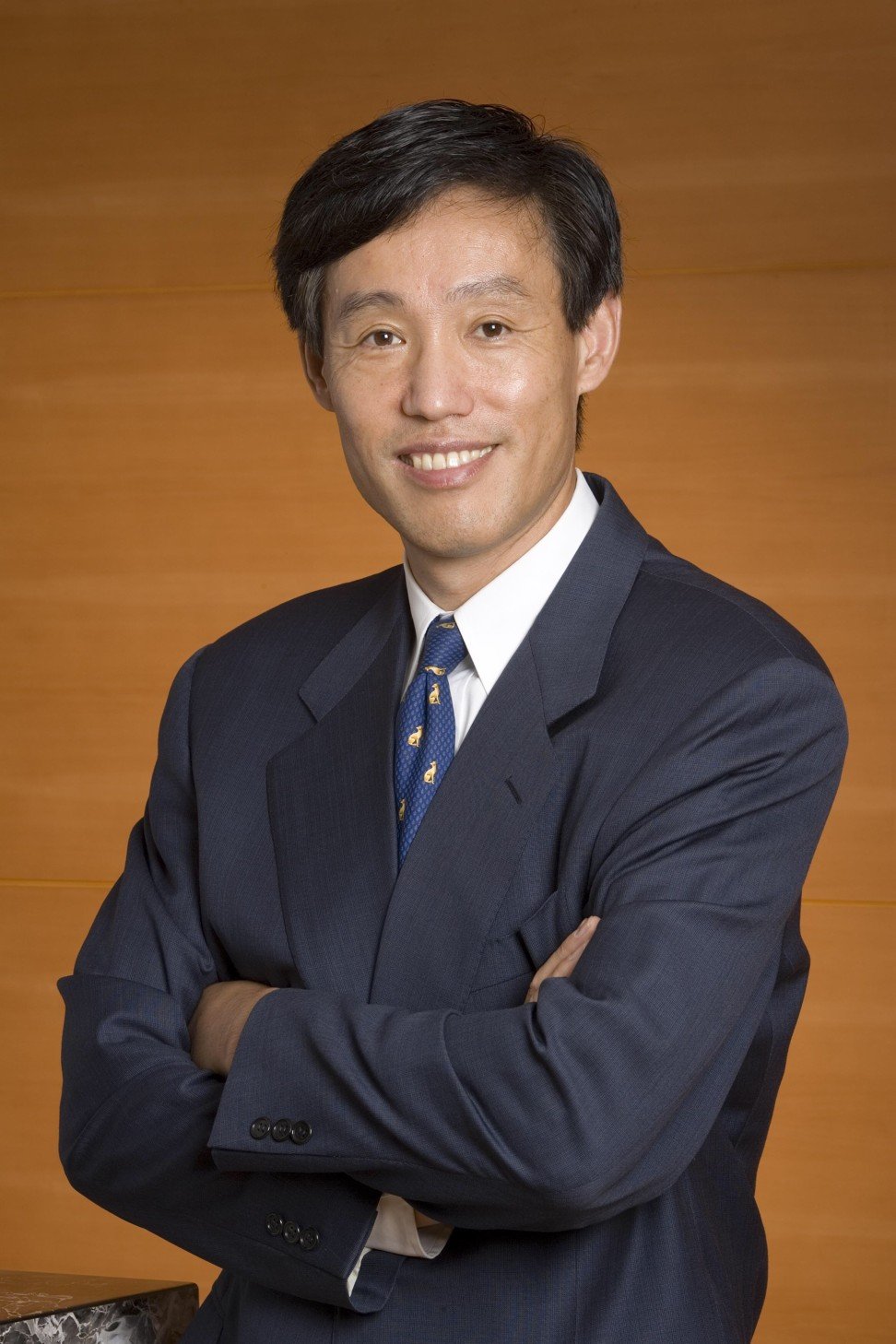
Premium rice entrepreneurs in China harness tech, crowdfunding to grow a safer, tastier grain
- Basmati in India, jasmine rice in Thailand, carnaroli in Italy – China, despite being the world’s biggest grower, has no rice to match these varieties
- Investors aim to change that with boutique organic production and new technology
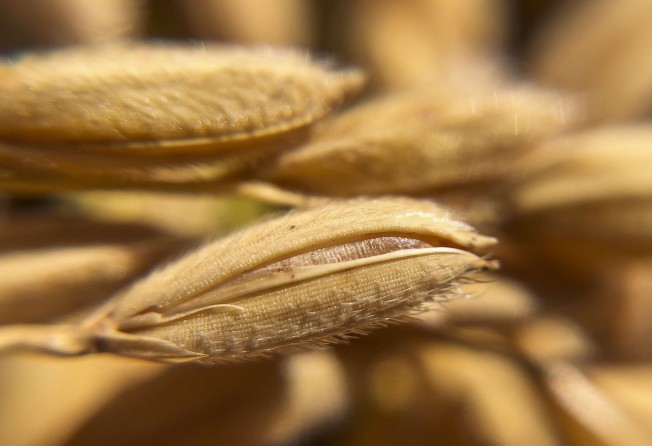
You would expect China to be the best grower of rice in the world. The Chinese have been cultivating the starchy seed for more than 8,000 years and the grain – the country’s most important staple – is imbued with cultural significance. But the people of the world’s largest nation of rice eaters – pickier in recent times given their new-found prosperity – are often let down by their own produce.
Ask any foodie to name the world’s great rice varieties and they are likely to answer with Thai jasmine, Indian basmati, Italian carnaroli and Japanese short-grain rice – varieties that instantly evoke images and flavours of the countries they are associated with. How about a grain from the land of fried rice? Most people would struggle to name one.
China produces more rice than any other country, even though its farms lack the scale and technology to yield, per hectare, as much as those in Japan, South Korea, the United States and Australia.
It has many kinds of rice, too, beyond the basic classifications of long-grain indica, short-grain japonica and glutinous. The country’s formidable agricultural research capacity has made it the world leader in producing hardy, blight-resistant hybrid strains, most notably those that agronomist Yuan Longping pioneered in the aftermath of the Great Famine (1958-61). The celebrated scientist continues to experiment today, at the age of 88. But many varieties of the grass classed as Oryza sativa in China are grown for yield, not flavour.
In any case, little is exported because Beijing maintains the world’s largest stockpile (nearly 70 per cent of global stock), for national security reasons, and domestic farmers are guaranteed generous prices, to remove incentives for selling rice abroad. That stance has recently been relaxed because domestic stockpiles are becoming too large. Still, even in Hong Kong or Macau you cannot find much rice from China . Hong Kong has long favoured Thai jasmine, with its distinctive fragrance.

China’s dubious food-safety record has not helped the reputation of its rice. Vast tracts of farmland and waterways are polluted by heavy metals, which bring periodic official warnings about excessive cadmium and arsenic in paddy fields. Add in the reaction to unethical business practices by sellers, such as the disguising of old rice by polishing dull grains with paraffin wax, and the overuse of bleach and other chemicals in processing, and it is now fashionable for Chinese households to install expensive, miniature rice mills in their kitchens.
Because its own people do not trust its rice, China has become the world’s largest importer of the grain, despite those massive stockpiles.
China’s per capita gross domestic product is now about 100 times higher than it was during the Great Famine; its people can afford to care about flavour. And more families are demanding safe, tasty rice that echoes their own history and culture. This, after all, is a country where all schoolchildren memorise Li Shen’s eighth-century poem Sympathy for the Peasants, which contains the line, “Each grain of rice is the result of hard toil.”
There are such deep, systemic problems with Chinese farms. Poor soil quality, poor water quality, overuse of chemicals are just one aspect
Three years ago, Sun Chang joined a growing band of entrepreneurs hoping to fill that gap in the market. He moves in circles of people prepared to pay well for good-quality Chinese rice. Born in China and educated in the United States, Sun is a veteran of Hong Kong’s financial services industry, where he was Asia chairman of Warburg Pincus, the American private equity firm he spent two decades working for. In 2015, he quit his job and set up a rice farm in Xiangshui, in rural Heilongjiang, China’s most northeasterly province.
Sun is no city slicker looking for a temporary rural escape. He spent decades raising billions of US dollars to fund acquisitions, and his agricultural business was to be ambitious in vision and scale. The original idea behind Black Soil Group, which also has a potato subsidiary, was to demonstrate how private investment has a role to play in transforming China’s agricultural sector.
“There are such deep, systemic problems with Chinese farms,” Sun told Post Magazine last year. “Poor soil quality, poor water quality, overuse of chemicals are just one aspect. Farms tend to be small and owned by individual villages. There simply isn’t enough cash flow for each farmer for investments or sometimes even to buy seeds for the next season. And that explains why there is still so much rural poverty in China.”
Sun planned to consolidate small farms into large, highly automated operations with the latest in crop-monitoring technology to reduce the use of pesticides and other harmful chemicals. China could grow non-genetically modified, delicious varieties of rice as efficiently as more developed markets, Sun thought, and other people would be willing to invest in his scheme.
Large-scale private equity investment in arable land tends to be controversial because investors’ financial aggression (private equity firms are not called “barbarians at the gate” for nothing) could drive up the price of increasingly scarce farmland, resulting in more expensive food. But in China, the government keeps so tight a rein on the agricultural sector that there is less sensitivity to such moves.
Black Soil took over farmland through a transfer deal involving local government. Farmers who sign up with the company are allotted individual plots, and they grow their japonica rice according to Black Soil guidelines, which follow European Union environmental standards. Black Soil buys all their rice and makes a profit by processing and selling it as a premium product under its own brand.
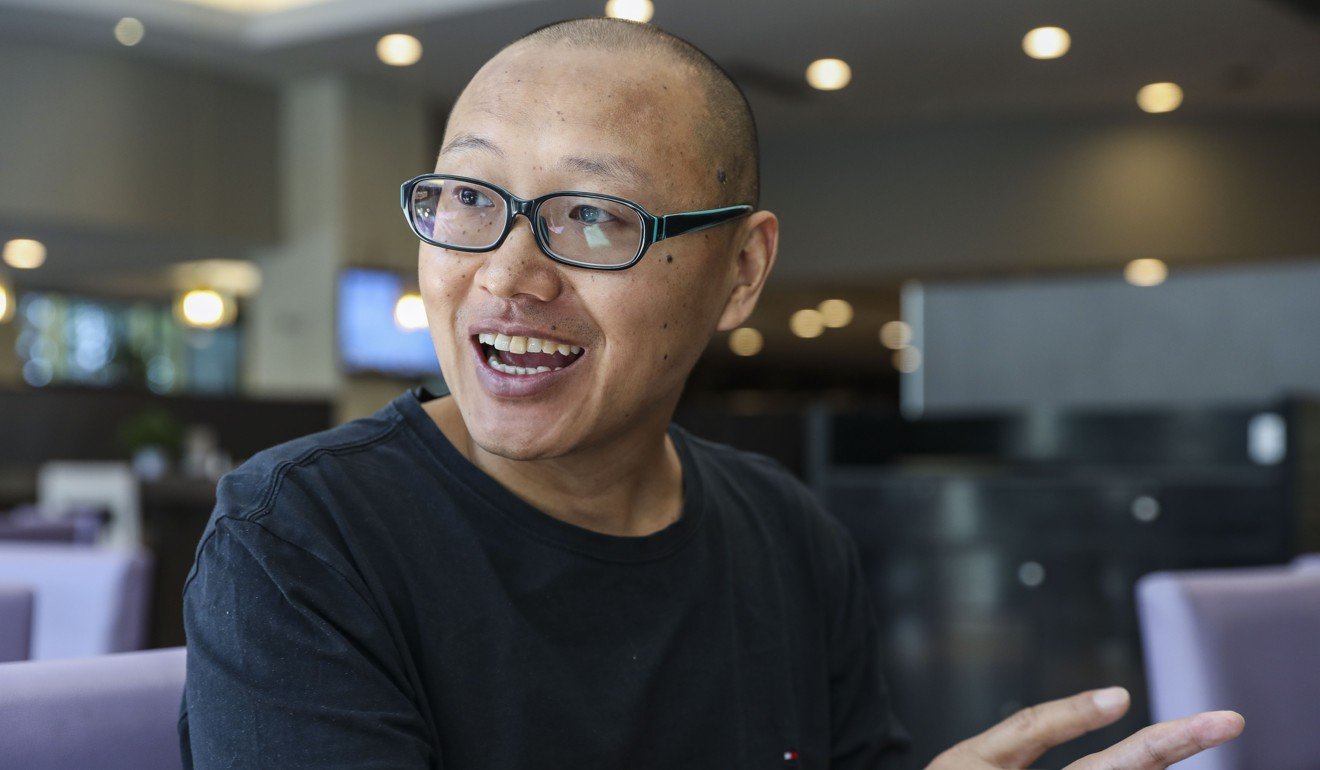
All has not gone according to plan, however. Outside investment has been slow in coming. Last September, Sun stepped back from the day-to-day running of Black Soil to take up a full-time position with TPG, another private equity firm. Professional managers and new stakeholders have been brought in to keep his rice dream alive.
Yu Huafeng, young-looking for his 50 years, is a major promoter and reseller of Black Soil rice. Having grown up the son of poor farmers, Yu was jailed in 2004 on corruption charges when he was deputy editor of what was then one of China’s most outspoken newspapers, Southern Metropolis News. Critics say the charges were trumped up by local officials to punish the newspaper for its aggressive reporting. Yu was released from prison in 2008 and today heads up Benlai Life, a Beijing-based online seller of fresh, safe, ecologically grown produce that he founded in 2012. The business boasts 25 million users across China and 4 billion yuan (US$575.8 million) in annual revenue, making it an ideal platform on which to market new food products.
Yu says he sells the rice using the same farm-to-market model that proved so successful with Chu oranges, a brand from Yunnan province in southwest China that was established in 2002 by Chu Shijian, who Benlai Life helped turn into China’s most famous farmer.
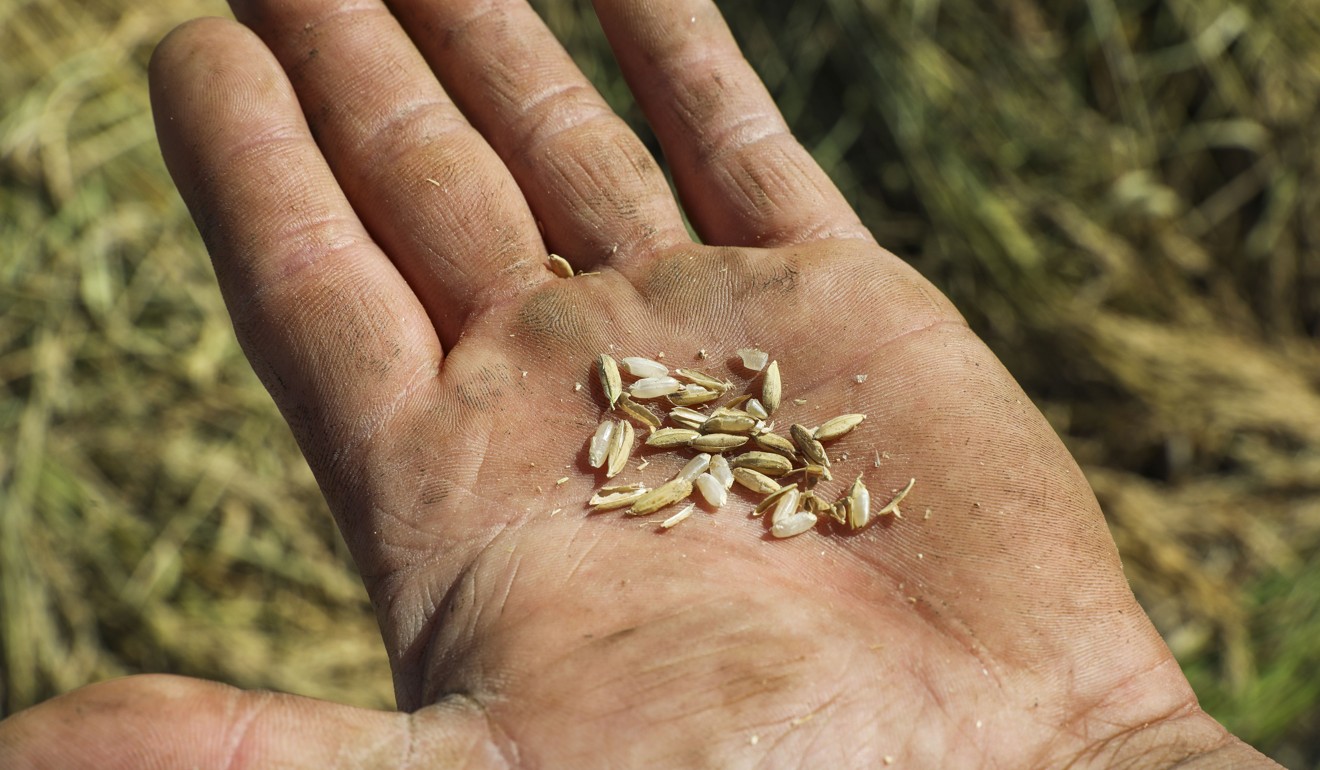
Chu too is a former prisoner who has reinvented himself with spectacular success. The former general manager of Yunnan tobacco company Hongta Group was sentenced to life imprisonment for corruption in 1999. He was freed early, in 2002, at the age of 74, and with the same energy that he had once applied to modernising China’s state tobacco industry, set about cultivating a fruit variety known as “sugar orange”, in the unpolluted hills of Yunnan. A decade later, Chu teamed up with Benlai Life to sell into the major cities, and the massive publicity campaign turned him into a national celebrity, so helping his fruit sell for more than double the price of similar oranges.
Chu’s company now produces about 200 million yuan worth of oranges a year and its success has demonstrated there is a massive market for smartly branded, safe, domestic produce. Chu initiated a trend for so-called dakas (celebrities or heroes of the business world) becoming brand ambassadors for all manner of farm products.
Liu Chuanzhi, founder of technology company Lenovo, set up a fruit business that sells the Liu kiwi, which is grown in Sichuan province in western China. Property tycoon Pan Shiyi is spokesman for Pan apples, which are grown in an impoverished area of Gansu province in northwest China where the billionaire grew up.
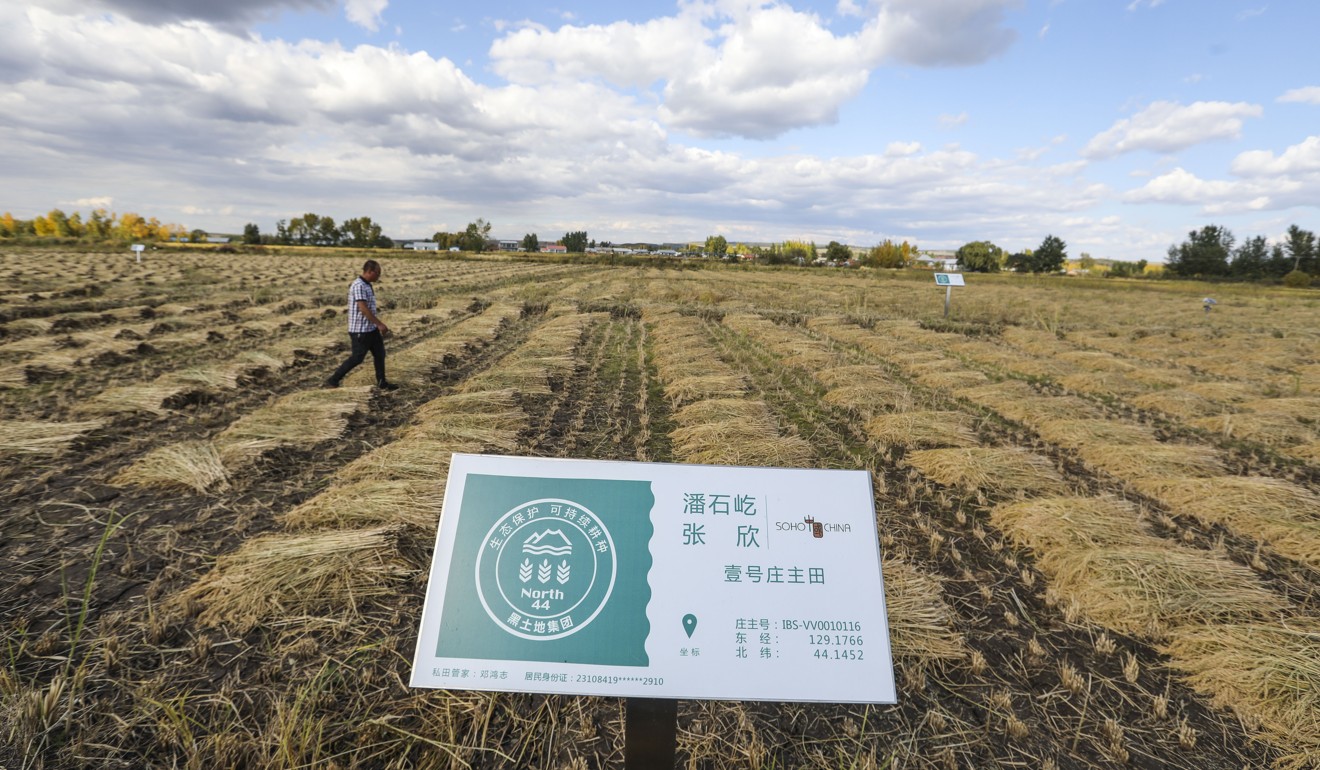
Commercial considerations aside, these campaigns seem to be driven by philanthropic impulses and the desire for personal catharsis – a going back to basics after having experienced China’s frenzied development.
Yu says he wants to help alleviate rural poverty because he lived through it. He recalls his parents having to sell their house to pay off debts when their rice crop failed.
“We were hungry all the time,” he says. “We often had no food in the house and had to queue for handouts. We didn’t even have enough rice, so we had to bulk it up with wild vegetables from the forest.”
But he caught the entrepreneurial bug from his parents after the 1978 economic liberalisation.
“They opened a restaurant and later started selling other people’s produce,” he says. “I guess that’s sort of what I do now. We became among the first families in the area to earn 10,000 yuan, which was considered a lot of money back then.”
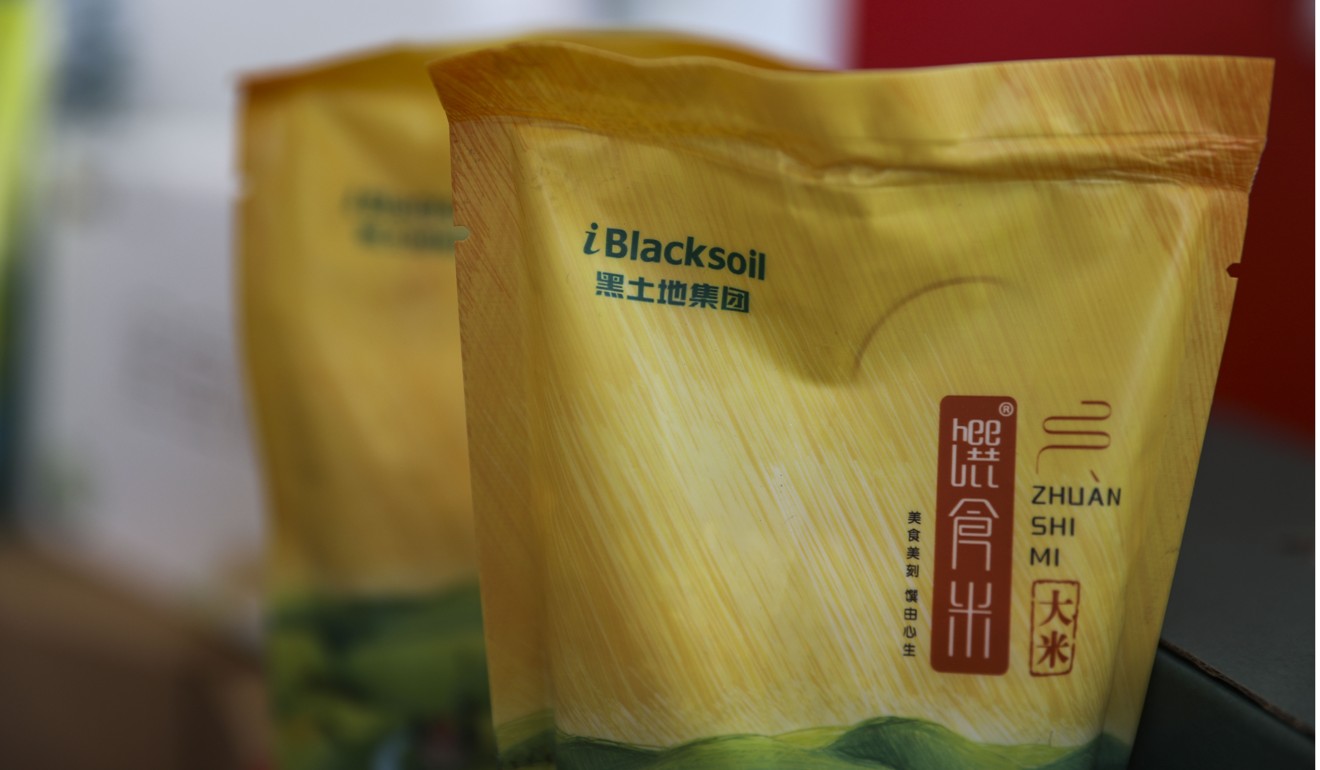
Yu’s platform is not the exclusive Black Soil seller, but its relationship with the farm is different from that of JD.com, which also stocks the rice. Benlai Life is the biggest among more than 30 “owners”, who do not possess a stake in the business but who essentially crowdfund the farm. Each prepays 50,000 yuan per mu (0.067 hectares) of land a year and owns the right to all the rice that is harvested from that plot, which averages a substantial 500 catties – 250kg – per mu.
All the Black Soil rice sold by Benlai Life comes from the thousands of mu that it “owns” in Xiangshui. Yu’s plots are certified organic, and Black Soil says the whole area is “pollution free”, in line with Chinese food-safety standards. The water flows from sparkling, clean Jingpo Lake, and there is little industry in the vicinity.
Pan is a brand ambassador. “This rice is so tasty, I can eat it on its own,” he eulogises on a magazine cover. He and his wife, Zhang Xin, co-founder of Beijing-based Soho China, one of the country’s largest commercial property companies, have also become “owners” of a piece of land. With an app, the couple, like other owners, can tap into real-time videos and climate reports relating to their farm.
Technology can also deliver hard truths, however. When Black Soil released a fleet of drones to conduct a detailed geological survey it discovered that Sun’s vision of scale and automation was not realisable.
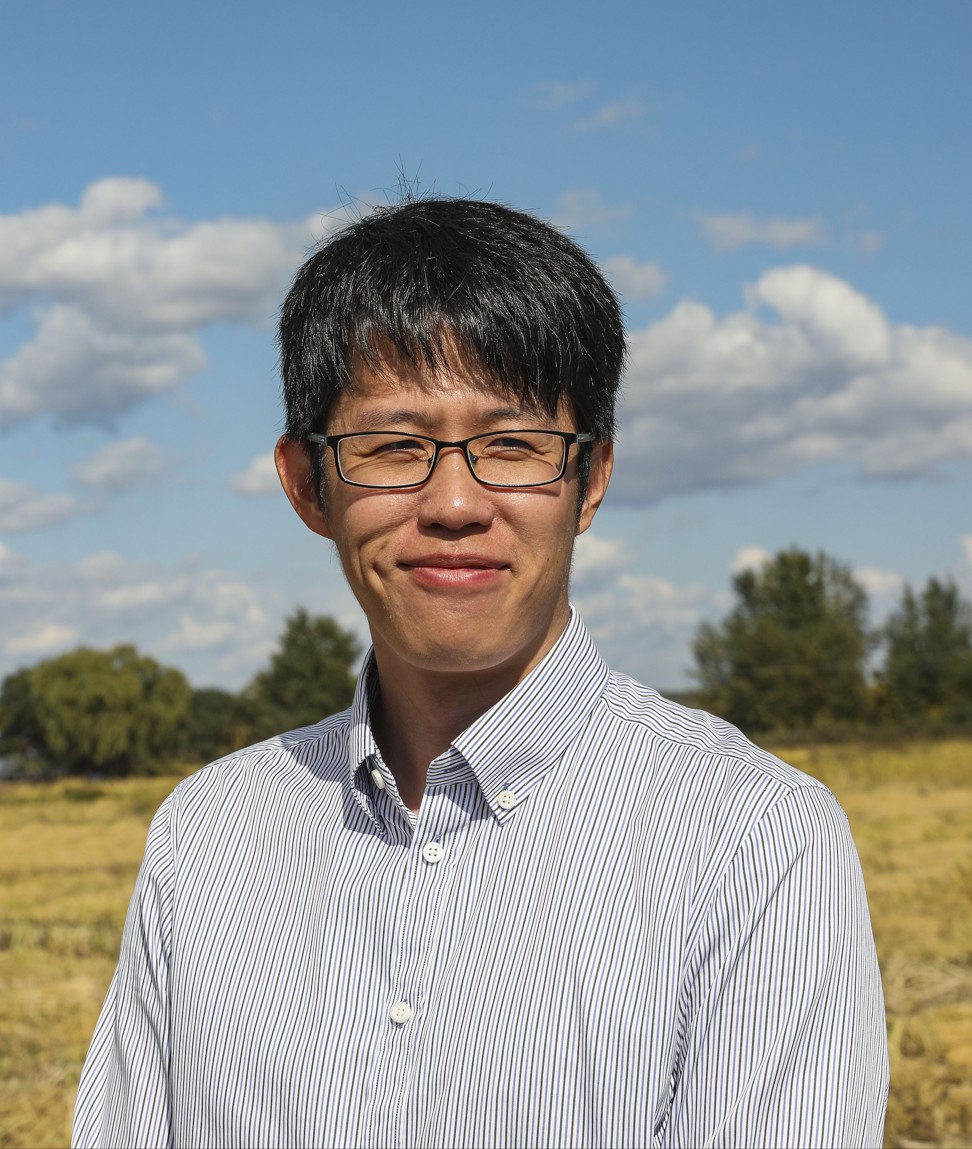
The company name comes from the area’s soil, which is a rich, dark variety called chernozem – a humus-heavy, fertile type found extensively in northeastern China, Russia and North America. In Heilongjiang, the thin layer of soil has suffered from erosion and overfarming and is growing shallower. Beneath the soil is a layer of uneven slate, which means that all the traditional, back-breaking work associated with rice growing – and that stirred Li’s sympathy in his Tang-dynasty poem – cannot be undertaken here by machines.
“We had to adjust our plans quickly,” says Zong Xiaowei, the man at the helm in Xiangshui today. “Instead of going for scale, we now operate as a boutique rice grower,” he says, under the warm autumn sun in the middle of the October harvest.
Zong spent many years working for state-owned Cofco Group – China’s biggest agricultural commodities producer and trader – and so is familiar with vast, largely empty Heilongjiang, which is nearly three times the size of Guangdong but with only a third of its population.
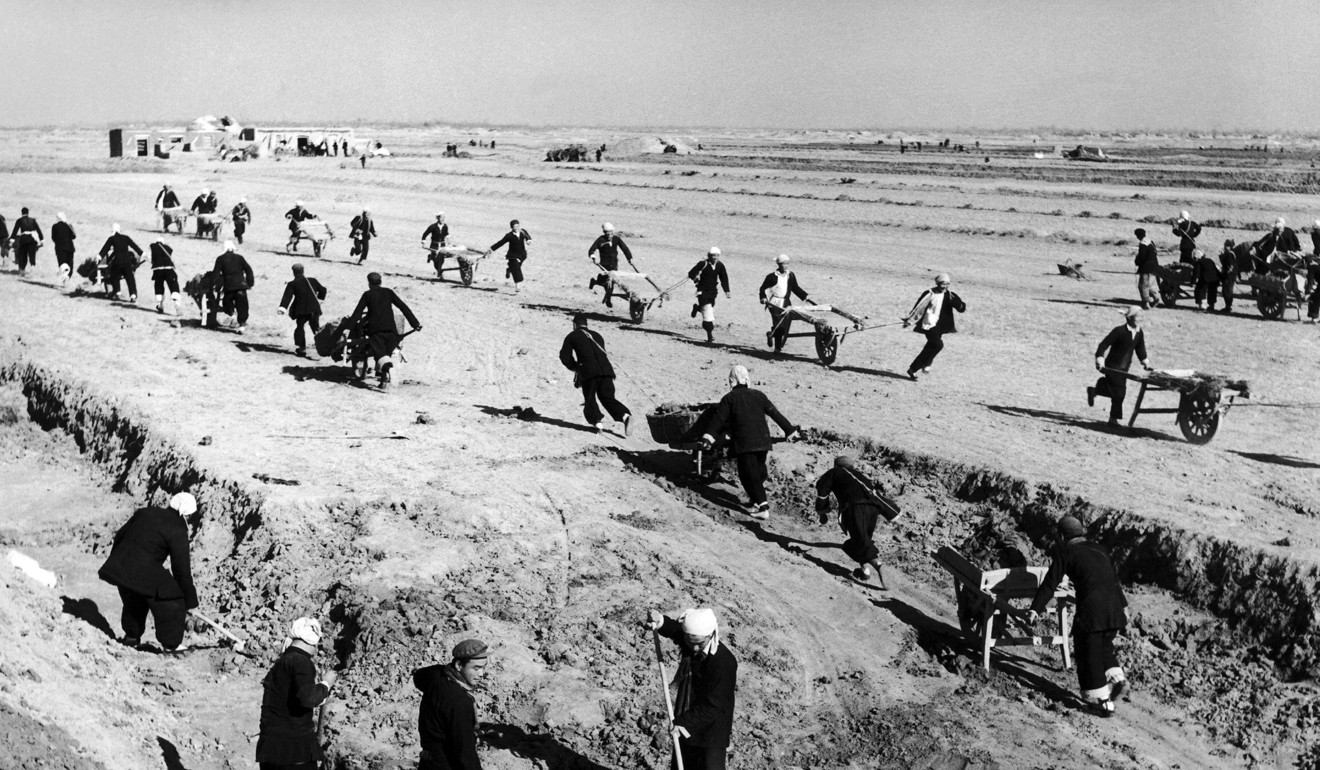
One reason the northeastern province has escaped the worst of China’s industrial pollution is that it is unbearably cold for half of the year. This is where those politically persecuted by the Communist Party were sent in the 1950s and 60s, forced to plough the beidahuang – the big emptiness in the north – as punishment. Now, however, the region is dubbed beidacang – the big silo in the north – because, despite the shortness of its growing season, modern farming methods allow it to produce more grain than any other part of China.
“Not the best grains necessarily,” says Zong. “But grains to fill bellies.”
Black Soil site manager Yu Lei is descended from Korean farmers who settled in Heilongjiang generations ago. The rice expert says one advantage of not relying on machines is a better crop. The plant retains more water if it is transplanted and harvested by hand, Yu says, and machines would cause more damage.
“Our rice is called stone slab rice because of the slate below the black soil, and the area has produced rice for thousands of years. Only emperors and, later, senior party officials were sent the rice,” he boasts. Rice from Xiangshui is identified with its origin in China in much the same way as wines and cheeses in Europe are tied to a specific terroir.
I eat it three times a day and I don’t eat any other kind of rice,” Yu says, over lunch at a restaurant near the farm. “I tried Thai jasmine once. I really can’t stand the taste
Yu says that having a single annual harvest makes northern rice more nutritious than the indica variety, which can yield two or three harvests a year in the warmer south.
“I eat it three times a day and I don’t eat any other kind of rice,” Yu says, over lunch at a restaurant near the farm. “I tried Thai jasmine once. I really can’t stand the taste.”
Yu is not alone in having a cultivated taste. Many people raised on a southern Chinese diet will eat only japonica when they go to a Japanese or Korean restaurant. This writer, being from Hong Kong, cannot say that her visit to the farm has converted her to Xiangshui rice; it is the fragrance of jasmine rice that smells like home. And it is a common mistake to assume rice consumption is a uniform habit. Wheat-based noodles, dumplings and buns are the staples in many regions of China.
A fragmented market is one challenge for growers of boutique rice that sells at 10 times the price of ordinary japonica from the northeast. There are many others.
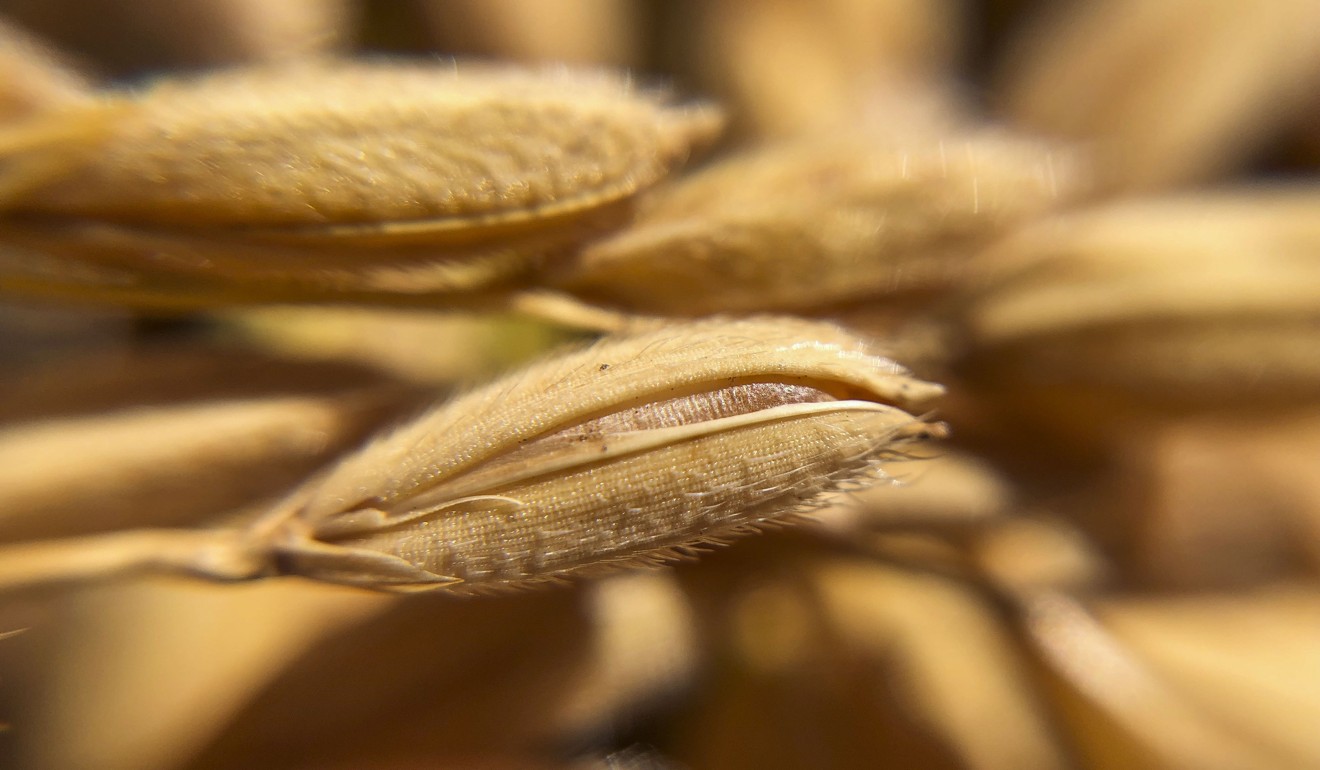
In the area where Black Soil operates, the local government is heavily promoting rice tourism and there are many farms advertising “heritage planting” and “eco” methods. And Xiangshui has a major rival in Wuchang, a boutique rice-growing region a four-hour drive away.
Wuchang rice, which has been bred to have a strong scent, has been such a hit that some distributors have been cashing in by selling fake varieties, containing other rice or grown outside the designated geographical indication.
“We don’t have that problem right now and we are building up customer loyalty quickly,” Zong says.
Under the group’s new “adopt a farm” scheme, individuals and companies can pledge smaller amounts in return for freshly harvested rice, and a portion will be sent to Shepherd’s Field, a charity in Tianjin that cares for orphans with special needs.
Even if Black Soil does not change the rice-eating habits of large numbers of Chinese, it is altering the lives of the farmers it works with.
Deng Hongzhi’s farm supplies rice to Benlai Life and appears idyllic in the middle of the October harvest. The sky is blue and the weather still mild enough for people to wear a single layer in Xiangshui. But Deng’s weathered face betrays the extreme conditions that he and the previous two generations of his family have endured.
“We get 10,000 yuan of rice from one hectare of organic farm, compared with 6,000 yuan for uncertified rice,” he says. “The company has paid for all the technology that we use to monitor moisture in the soil and so on, so we are definitely better off now.”
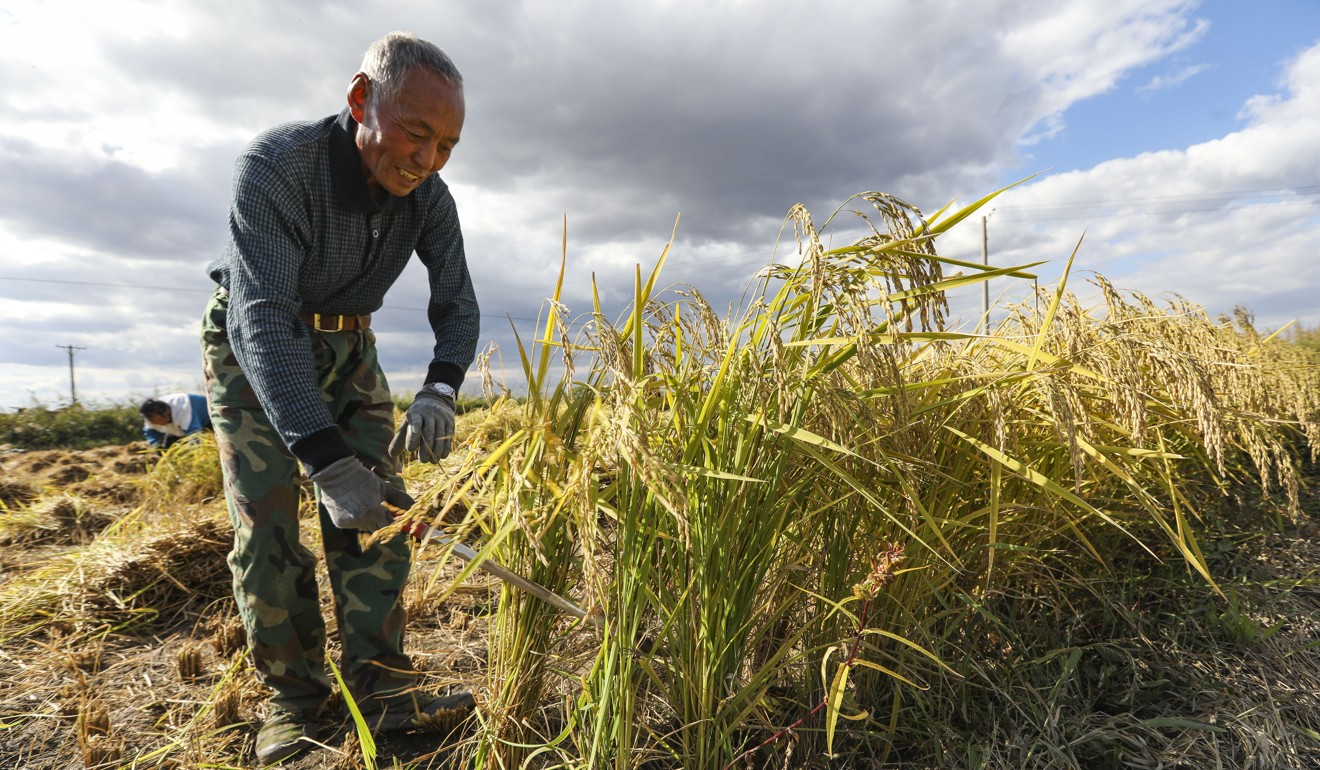
Nevertheless, Deng does not want his teenage son to follow in his footsteps.
“I have to take painkillers every day during transplant season because you are bending down all day long. And when it’s harvest time, you go for weeks with hardly any rest or sleep, and live in fear of rain because it would spoil the cut paddy,” says the farmer. “It is intense.”
As he makes his way through the fields, though, Deng reaches out and caresses his golden rice plants with pride, affection even.
“On the May 1 holiday, we transplant the paddy,” he says. “On October 1, National Day, we start harvesting. This is the calendar my family has lived by for years. And I cannot imagine doing anything else.”